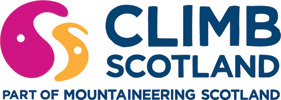FAQs
What is the SRSA?
The Scottish Route Setting Association was set up to meet the needs of route-setters, both in Scotland and further afield, and offers an uncomplicated pathway to the highest quality qualifications for setters for both boulder and roped setting. It also offers an artistic setter attendance course. The SRSA is an initiative set up by two of the UK’s leading setting trainers, supported by climbing walls and organisations across the country.
What does it consist of?
Full details of the courses are on the relevant course content page. However, both the artistic and the Boulder Setter courses last for one day, the latter with an on-going element of assessment. The Rope Access Setter course last two days, again with an on-going assessment. There will also be some pre-course reading and a short written-paper to complete. Note that candidates need to be at least 18 years of age to attend the roped courses.
Can I book a course for just my own staff?
Yes, courses can be run at your own wall or centre. Get in touch and we can give you further details.
Do I need to be a member of the SRSA or other organisation?
No. We would always recommend membership of Mountaineering Scotland but this isn’t compulsory. The SRSA is determined to provide an accessible and affordable pathway for setters and we feel that requiring any sort of membership would preclude this.
Can I bring and use my own equipment?
You are welcome to bring and use your own equipment but it must be safe, fit for purpose and compliant with the relevant legislation. Any equipment that is to be used on the Rope Access Setter course, for instance, must have evidence with it that it has been maintained and serviced in the required manner.
.
Can I fail the course and/or the assessment?
Yes! Your trainer/assessor will do all they can to support you through the process but ultimately the result is up to you. If you don’t comply with the requirements for completing some of the elements of, for instance, the Rope Access Setter course, you will not be issued with a certificate as you will have not demonstrated the required skills or knowledge in a certain area. Having said that, we do all we can to support candidates via a relaxed and workshop-style atmosphere so it shouldn’t feel like a scary assessment, more like continuous training and practice.
.
.
Where is it valid?
The SRSA Setter courses are valid across the UK as well as in some countries abroad. All of the walls outside of Scotland which have been involved in the consultation process have given a positive response and are happy to accept the qualifications. The artistic setter course is a personal CPD course and, as such, does not have a qualification outcome. It will, however, be an ideal proof of competency for artistic setting, both in the UK and abroad.
Where are the courses held?
Details of course venues are on the relevant course content page. However, the majority are based in Scotland at a variety of walls, and they can be run at specific venues if requested.
Do I need to complete one course before progressing to the next?
There is no need to go through a progression of courses if you don’t want to. The Advanced Setter course has some pre-experience requirements, detailed on the course page, but there’s no need for any formal pre-course training.
What equipment is included?
The course booking confirmation will detail the equipment needed and/or provided. For the Rope Access Setter and Advanced Rope Access Setter courses, all equipment is provided and included in the course cost.
Is there a separate assessment?
No. The assessment is part of the course content (except for the artistic course, which has no assessment element), and is on-going during the course rather than on a separate day. This means that you can be supported during the process, rather than having harsher exam-type conditions. It also means that the costs and your time are less. However, please note that this is not a soft-touch! As the courses are compliant with the requirements of various important legislations, there is a standard to be maintained. There is also a pre-course theory paper, covering various legislation and regulations, which forms part of the assessment. We do feel, though, that a supportive on-going assessment suits most candidates better than a stand-alone separate day.
What happens if I fail an assessment?
If this happens, your trainer/assessor will talk you through the element/s which are not at the standard and suggest areas on which you should work. You can then present yourself for a reassessment at a time that suits you, assuming that you are happy that you have rectified any weaknesses. The reassessment might be you joining a scheduled course or, potentially, you attending a 1:1 at a mutually acceptable date and location. Often, reassessments of a technical nature won’t take more than half a day to complete and they will always contain elements of extra coaching and teaching.
SRSA – IN ASSOCIATION WITH CLIMBSCOTLAND
